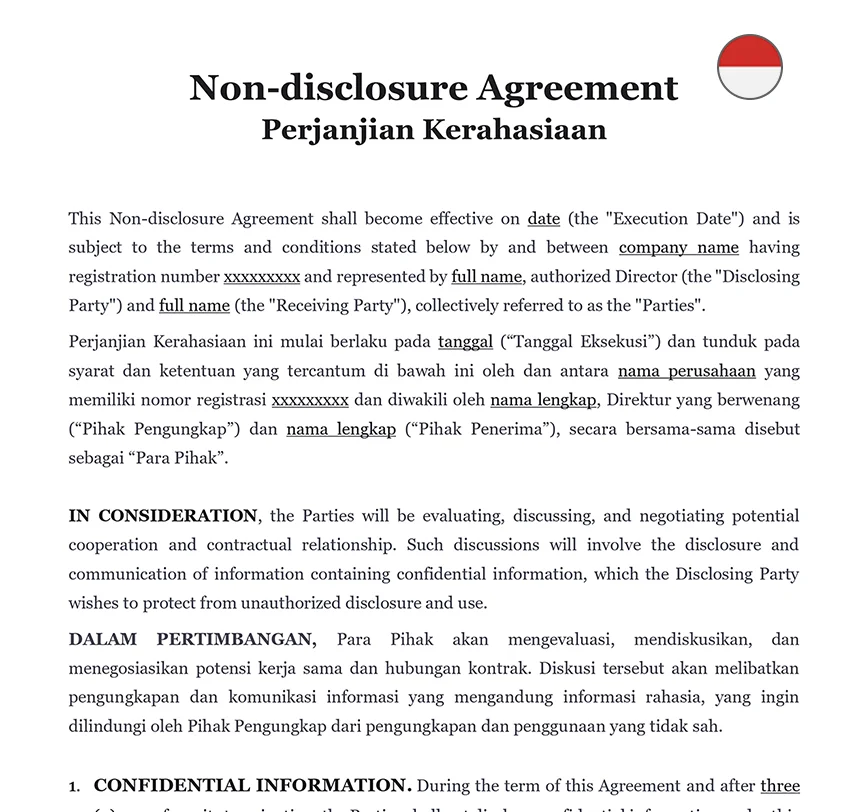Ready to use legal template
Drafted by experienced lawyers
Indonesian-English translation
Ready to use legal template
Drafted by lawyers
Indonesian-English translation
Home › Business contracts › Non-disclosure agreement (NDA)
Learn more about Non-disclosure agreement (NDA)
A Non-disclosure Agreement (NDA) is a legal contract that ensures the confidentiality of sensitive information shared between parties. It is commonly used in business relationships to protect trade secrets, proprietary information, and other confidential data from being disclosed to unauthorized individuals or entities. In Indonesia, an NDA is essential for businesses to safeguard intellectual property, prevent data breaches, and maintain competitive advantage. Whether you’re negotiating with potential partners, or investors, having a clear NDA in place is vital for protecting your business interests. Download our Non-disclosure Agreement (NDA), easy to edit in Word format, drafted by experts in both English and Indonesian.
Table of contents
-
What is a Non-Disclosure Agreement (NDA) in Indonesia?
-
What is the role of a Non-Disclosure Agreement?
-
What is included in the NDA under Incodnesian law?
-
What are the different types of Non-Disclosure Agreement?
-
When to use a Non-Disclosure Agreement?
-
What is "Confidential Information" in Indonesia?
-
What happens in case of breach?
What is a Non-Disclosure Agreement (NDA) in Indonesia?
A Non-Disclosure Agreement is frequently used in business to maintain the confidentiality of private information supplied to another party or communicated during the course of business. Non-Disclosure Agreements are frequently referred to as “Confidentiality Agreements” or simply “NDAs.” A secrecy agreement is occasionally a confidentiality clause inserted in another contract, such as an employment contract or a service agreement.
What is the role of a Non-Disclosure Agreement?
A Non-Disclosure Agreement serves two functions: secrecy and protection. A confidentiality agreement might safeguard information ranging from product specifications to client rosters. A NDA establishes the legal basis for preventing ideas and information from being stolen or disclosed to rivals or third parties. An NDA serves three fundamental purposes:
| ➤ Identifying protected information: NDAs categorize information by creating a line between what is secret and what can be revealed. This permits the parties to work freely within the confines of the confidentiality agreement. |
| ➤ Safeguarding sensitive data: Signing an NDA establishes a legal commitment to keep sensitive material private. Any disclosure of the information is a breach of contract. |
| ➤ Protecting patent rights: Because public revelation of a pending innovation can often terminate patent rights, an NDA can shield an inventor as they develop their new product or concept. |




